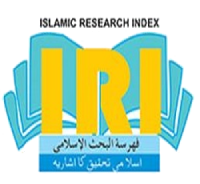مولانا حسین علی الوانی مکتب فکر کے تصور نظم کا تجزیاتی مطالعہ
Analytical Study of the Concept of Nazm e Quran of Maulana Hussain Ali Alwani's School of Thought
Keywords:
Nazm e Quran, Miracle, Maulana Hussain Ali Alwani, Quranic interpretation, Quranic SciencesAbstract
This research paper delves into the concept of Nazm-e-Quran (Coherence of the Holy Quran), a crucial aspect of Quranic Sciences that has evolved over the course of Islamic history. Focusing on an in-depth analytical study of the concept of Nazm-e-Quran in the school of thought of Maulana Hussain Ali Alwani, a renowned Islamic scholar having expertise in the fields of Quranic interpretation and Quranic Sciences. The study explores Alwani's interpretation of Nazm-e-Quran, its significance in understanding the Quranic message, and its implications for Islamic thought and practice. Through a critical analysis of Alwani's works and lectures reproduced by his disciples in bookish form, the paper examines the key themes, arguments, and methodologies employed in his approach to Nazm-e-Quran. The study reveals the distinct features of Alwani's perspective on Nazm-e-Quran, including his emphasis on the interconnectedness of Quranic verses, the role of context in interpretation, and the importance of considering the Quran as a unified whole. The paper contributes to a deeper understanding of Alwani's scholarship and the ongoing debates on Quranic interpretation, coherence, and hermeneutics.
Downloads
Published
How to Cite
Issue
Section
License

This work is licensed under a Creative Commons Attribution 4.0 International License.
This work is licensed under a Creative Commons Attribution 4.0 International License.





